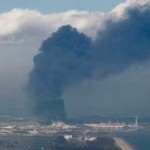 When it comes to the nuclear-power disaster unfolding in Japan, there clearly is far more to fear than fear itself. But fear is clearly one of the biggest – and could turn out to be the most potent – dangers.
When it comes to the nuclear-power disaster unfolding in Japan, there clearly is far more to fear than fear itself. But fear is clearly one of the biggest – and could turn out to be the most potent – dangers.
Although radiation escaping from a nuclear power-plant catastrophe can increase the risk for many cancers and other health problems, stress, anxiety and fear ended up in many ways being a much greater long-term threat to health and well-being in Chernobyl, Three Mile Island and other nuclear accidents, nuclear experts said Monday.
“The psychological effects were the biggest health effects of all – by far,” said Fred Mettler, a University of New Mexico professor emeritus and one of the world’s leading authorities on radiation, who studied Chernobyl for the World Health Organization. “In the end, that’s really what affected the most people.”
Fears of contamination and anxiety about the health of those exposed and their children led to significantly elevated rates of suicidal thinking and anxiety disorders, and rates of post-traumatic stress disorder and depression about doubled, Mettler and others said.
“The effect on mental health was hugely important,” said Evelyn Bromet, a professor of psychiatry at Stony Brook University who studied the aftermath of Three Mile Island and Chernobyl. “People’s fears about getting cancer, or their children getting cancer, and family and friends dying from radiation exposure were very intense.”
In the unprecedented disaster in Japan, where an earthquake triggered a tsunami that was followed by a major nuclear power-plant emergency, all those negative psychological effects are being magnified in ways that no one can predict.
“You can imagine: There was an earthquake, and I survived that. And then here comes a tsunami, and I survived that. And then comes a nuclear reactor,” said Mettler, the U.S. representative to the United Nations who studied Chernobyl. “With that kind of triple whammy, you can only imagine someone is going to be saying, ‘What did I do? What’s wrong with me?’ ”
Survivors of the 1945 bombings at Nagasaki and Hiroshima, Chernobyl and other nuclear accidents in Japan and Brazil were stigmatized by their societies, which caused discrimination that intensified the emotional distress.
“After almost every radiological emergency, anyone or anything seen as or perceived as associated with the emergency come to be seen by others as tainted or something to be feared and even the object of discrimination,” said Steven Becker of the University of Alabama at Birmingham.
Such stigmatization can interfere with victims receiving care and recovering from the event, said Becker, who studied the psychological and social impact of a much less severe nuclear accident in 1999 in Tokaimura, Japan. In that case, people in other parts of Japan refused to buy products from that region, and travelers were refused at hotels and asked not to use public baths and swimming pools. Similar discrimination occurred after a 1987 radiation-exposure incident in Goiania, Brazil.
In the long run, such incidents can also negatively transform entire cultures. In the areas affected by the 1986 Chernobyl accident, a crippling sense of hopelessness was passed down through generations.
“What we know from experience is the psychological footprint from a nuclear disaster can not only be massive but in many ways greater than the effect of radiation,” Becker said.
“On an individual level, these range all the way from anxiety disorders, depression, and substance abuse all the way to a kind of culture of fatalism and hopelessness that has gripped the population in many areas, and it continues today decades later.”
There are many reasons why humans fear radiation so intensely. Part of it is because radiation is silent, invisible and odorless. Part of it is because radiation is associated with cancer, itself one of the most feared words. Part of it is that in accidents, as opposed to medical treatments, the exposure is involuntary.
And part of the reason is the searing images of victims of Nagasaki and Hiroshima, a generation raised fearing Cold War mushroom-cloud annihilation and how radiation is portrayed by popular culture.
“In the movies and in comic books people getting exposed to radiation turn into monsters,” said John Boice, a radiation expert at the International Epidemiology Unit in suburban Washington.
by Rob Stein – Mar. 15, 2011 12:00 AM Washington Post

